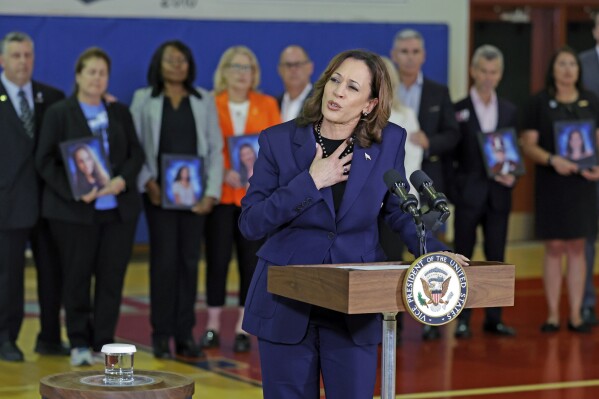Analysis: Florida insurers made money last year for first time in 7 years
ORLANDO, Fla. (AP) — Florida insurance companies made money last year for the first time in seven years, thanks to investment income and a mild hurricane season, according to an analysis conducted by S&P Global Market Intelligence.
A group of around 50 insurers reported $147.3 million in net income for 2023, compared to net losses of more than $1 billion in each of the previous two years, according to the analysis released last week.
The group excluded state-backed Citizens Property Insurance Corp., which is the insurer of last resort for Florida homeowners unable to get a policy anywhere else. Citizens is Florida’s largest underwriter of home insurance policies, with 1.2 million policies at the end of last year.
While the group of insurers still had collective underwriting losses of $190.8 million, it was much smaller than in past years, when it was almost $1.80 billion in 2022 and $1.52 billion in 2021, S&P Global Market Intelligence said.
Florida has struggled to maintain stability in the state insurance market since 1992 when Hurricane Andrew flattened Homestead, wiped out some insurance carriers and left many remaining companies fearful to write or renew policies in Florida. Risks for carriers have also been growing as climate change increases the strength of hurricanes and the intensity of rainstorms.



Last year, Farmers Insurance said it was discontinuing new coverage of auto, home and umbrella policies in Florida, and AAA said it had decided not to renew “a very small percentage” of homeowners and auto insurance policies.
Nine insurers have been declared insolvent or merged into other companies in Florida since 2021. Average annual property insurance premiums jumped 42% last year to $6,000 in Florida, compared to a national average of $1,700.
The Legislature and Florida Gov. Ron DeSantis grappled with the issue in 2021 and 2022, including holding a special session, but most of the focus was on shielding insurance companies from lawsuits and setting aside money for reinsurance to help protect insurers.
The insurance companies are optimistic that the changes have reduced expenses, particularly the costs to litigate claims. Additionally, Florida regulators this year have approved six property and casualty insurers to start writing residential property insurance policies, S&P Global Market Intelligence said.
Disclaimer: The copyright of this article belongs to the original author. Reposting this article is solely for the purpose of information dissemination and does not constitute any investment advice. If there is any infringement, please contact us immediately. We will make corrections or deletions as necessary. Thank you.






